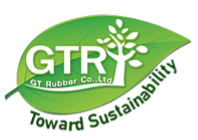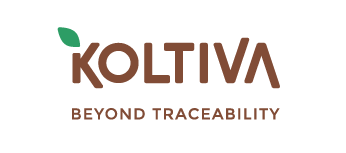Thailand’s Rubber Company (G T Rubber) and Indonesia’s AgriTech Firm Map Over 15,000 Plots and Verify 4,500 Farmers to Ensure Deforestation-Free Supply Chain
- Daniel Prasetyo

- 4 days ago
- 6 min read
Executive Summaries:
Over 90% of the world’s natural rubber is grown by smallholders, yet many remain invisible in formal supply chains. Thailand leads production at 34%, followed by Indonesia (26%), Vietnam (8%), China (7%), and India (7%).
More than 4 million hectares of forest (an area as large as Switzerland) have been cleared for rubber plantations since 1993, primarily in sensitive ecosystems. To stop further loss, traceability is now a priority across the industry.
Over 15,000 rubber plots have been mapped, and 4,500 farmers have been verified as part of a traceability initiative by G T Rubber, in collaboration with Indonesia’s AgriTech Firm, KOLTIVA. The effort also trained 200 dealers on EUDR compliance to prevent unverified rubber from entering the supply chain.
Bangkok, 11 August 2025 – Thailand, one of the world's top natural rubber enterprises, is undergoing a pivotal shift as regulatory and market forces converge around traceability and sustainability. At the forefront of this transformation is G T Rubber, a key industry player that has partnered with agritech firm Koltiva to implement a rigorous traceability and risk management system designed to align with the European Union's Deforestation Regulation (EUDR).
To implement a comprehensive traceability system that captures, verifies, and monitors rubber production from smallholder farms to export.
Table of Index:
Data-Driven Infrastructure at the Farm Level for Deforestation Free Supply Chain
The Dealer Bottleneck: Training and Segregation as Mitigation Tools
Fragmentation, Aggregation, and the Traceability Challenge
More than 90% of global natural rubber is produced by smallholders in Southeast Asia, most of whom operate outside formal supply chains and have limited links to processors or buyers (SPOTT, 2022). Thailand leads production at 34%, followed by Indonesia (26%), Vietnam (8%), China (7%), and India (7%). While the sector supports millions of livelihoods, its rapid expansion has fuelled deforestation, biodiversity loss, and land tenure conflicts. A fragmented network of intermediaries—traders and aggregators—adds further opacity, making traceability and sustainability difficult to enforce.
A 2023 study published in Nature Journal underscores the urgency: more than 4 million hectares of forest (an area as large as Switzerland) have been cleared for rubber plantations since 1993—half of that since 2000—much of it in ecologically sensitive areas. The sector's environmental footprint is significant, yet rubber remains absent mainly from global deforestation discourse.
As trade regulations evolve, the capacity to verify sourcing origins—down to the farm level—will determine which exporters can continue accessing premium global markets.
Data-Driven Infrastructure at the Farm Level for Deforestation Free Supply Chain
G T Rubber is advancing traceability and risk management by deploying a digital system from Indonesia’s AgriTech Firm Koltiva that verifies land legality, assesses deforestation risk, and links farm-level data to sourcing transactions. This granular dataset forms the backbone of
G T Rubber's compliance framework, enabling real-time monitoring and risk flagging. Crucially, this system prepares the company for seamless integration with forthcoming EU Information Systems (EUIS), which will require detailed geolocation and due diligence disclosures.
To date, over 15,000 smallholder plots have been polygon-mapped, across Thailand with more than 4,500 rubber farmers verified through geospatial analysis, land tenure checks, and deforestation risk assessments. These validated data points are directly connected to sourcing transactions within a centralized Management Information System (MIS), providing G T Rubber’s compliance team with the ability to track, assess, and respond to risks in real time.
Designed to align with upcoming EUIS, the system supports detailed geolocation tracking and due diligence reporting; key requirements under the EU Deforestation Regulation (EUDR).
By consolidating verification and monitoring into one platform, G T Rubber strengthens transparency and readiness as sustainability regulations evolve.
"Deforestation linked to rubber is often underestimated in global discourse, yet the data is clear. Millions of hectares have been lost in the past two decades. If we want to maintain access to international markets, we must move beyond declarations and into systems that generate verifiable, actionable data from the field. That's the only way to prove what's really happening on the ground,” said Manfred Borer, CEO and Co-Founder at KOLTIVA.
"EUDR and similar regulations are not temporary hurdles—they're signposts for where global trade is heading. For businesses, the ability to demonstrate traceability down to the farm level is now a core part of long-term resilience. This is about ensuring our supply chains can adapt—not just to today's rules, but to tomorrow's expectations."
The Dealer Bottleneck: Training and Segregation as Mitigation Tools
Dealers often represent a weak link in the compliance chain, operating in remote regions with limited digital infrastructure and a lack of knowledge about new regulatory demands. Over 200 dealers in G T Rubber's network have undergone structured training through the capacity-building program. The training and coaching combine regulatory literacy with practical implementation, offering hands-on guidance and pre- and post-assessments to evaluate dealer understanding of both the EUDR and traceability practices. Additionally, labelling systems are provided for compliant segregation (for both compliant and non-compliant rubber), and sourcing protocols are implemented to reduce contamination of verified supply.
"Farm data alone won't secure compliance. If a dealer adds unverified rubber into the supply, the entire batch—and the credibility of the traceability system—comes into question. That's why we emphasize capacity building and verification at every level—especially where aggregation happens," said Olivier Barents, Senior Head of Marketing APAC at KOLTIVA.
"The risk is real: one non-compliant shipment can result in costly penalties or shipment rejections. That's why we prioritize traceability not only at the farm level but also among dealers—through targeted training and traceability tools. A single undocumented shipment can jeopardize market access. Our role is to equip suppliers with systems that identify and resolve these risks before they escalate into regulatory violations."
Three-Tier Traceability Engagement Framework
A recent initiative in southern Thailand from G T Rubber offers a practical model for advancing deforestation-free rubber supply chains. The program is structured around a three-tier engagement framework that begins with strategic alignment at the corporate level, followed by targeted training for local dealers, and continuous coaching for smallholders in key sourcing regions. This layered approach reinforces data integrity and improves traceability at critical aggregation points—often the weakest links in supply chain transparency.
What sets this model apart is its integration of multiple risk-detection systems. Satellite imagery, national land-use records, and deforestation alert platforms are combined to generate dynamic, georeferenced profiles of sourcing areas. These profiles support more accurate risk assessments and enable pre-emptive interventions.
G T Rubber plans to expand the traceability initiative to more provinces in 2025, aiming to onboard at least 10,000 Smallholder Producers by 2027 and increase the share of verified rubber in its total output. The company is also working closely with Koltiva to strengthen the traceability framework further, leveraging new digital features and analytics to identify sourcing gaps and monitor field-level performance.
"This is about long-term competitiveness," said Tanaphon Tanunpatcharapol, Managing Director at G T Rubber Company Limited. "Buyers are no longer just asking for quality—they're demanding proof that materials are traceable and deforestation-free. That's the future of global trade."
===
About G T Rubber
G T Rubber Company Limited (GTR), we recognize that the future of our industry, our planet, and the livelihoods of millions rests on a foundation of sustainable practices. The escalating global challenges of climate change, irreversible deforestation, biodiversity loss, and critical human rights issues compel us not just to comply, but to proactively champion sustainable business practices for a "TOWARD SUSTAINABILITY & BEYOND" for our communities, our customers, and generations to come.
About KOLTIVA
Offering human-centered technology and boots-on-the-ground solutions that digitize agribusinesses and help smallholder producers transition to sustainable practices and traceable sourcing, KOLTIVA is recognized as the leading global sustainable agriculture and supply chain traceability company. As a global technology provider, it constructs ethical, transparent, and sustainable supply chains, assisting enterprises in fortifying their resilience and transparency. The company helps businesses and their suppliers comply with ever-changing regulations and consumer demands worldwide with traceability solutions. Operating in more than 65 countries and fortified by a network of customer support offices in 20 countries, KOLTIVA is committed to supporting over 19,000 enterprises in establishing transparent and robust supply chains while empowering over 1,900,000 producers to increase their annual income. www.koltiva.com
Press Contacts
Mr. Tanaphon Tanunpatcharapol
Managing Director
G T Rubber Company Limited






















Commenti